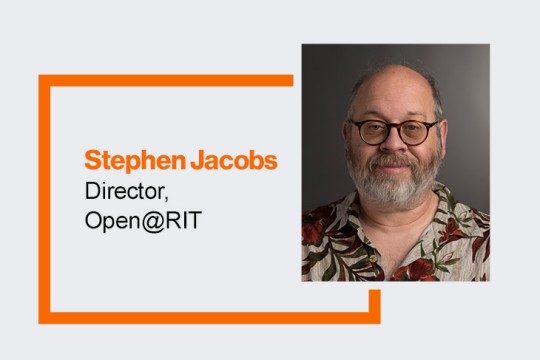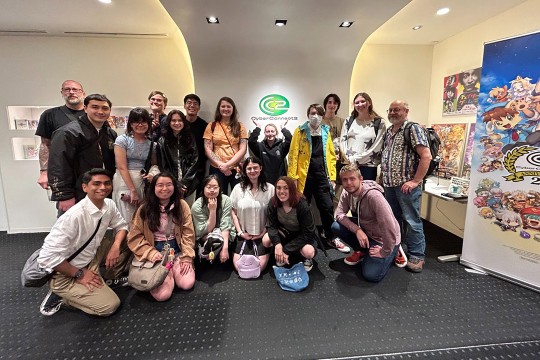
Stephen Jacobs
Professor
Stephen Jacobs
Professor
Education
BA, MA, New School for Social Research
Select Scholarship
Currently Teaching
In the News
-
July 30, 2024

Travel-enhanced game design and development course takes students to Japan
The two-week trip was the culmination of the Japanese Game Industry course, where students learned about the world’s third largest video game market. RIT students immersed themselves in the culture, participated in a game jam with Japanese students, and visited a major Japanese game studio.
-
July 20, 2023

Convening public benefit and charitable foundations working in open domains
Open@RIT has joined the Open Policy Alliance. Stephen Jacobs, director of Open@RIT, discusses the new program aimed at supporting a coalition of underrepresented voices from public benefit and charitable foundations.
-
June 27, 2023

Game design course immerses students in Japanese video game industry
There was an extra two weeks of class for some RIT students who ended their semester with a trip to Japan. The trip was the culmination of a Japanese Game Industry course last spring, where students learned about the world’s third largest video game market.
-
November 21, 2024
Jacobs featured in 'American Journal of Play'
-
November 8, 2024
Jacobs to present talk on Jewish games designers
-
October 30, 2024
Jacobs recieves Tourism Achievement Award
-
November 30, 2022
Faculty members attend mEducation Alliance Symposium




